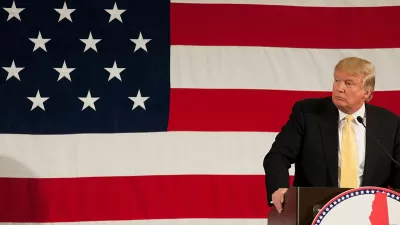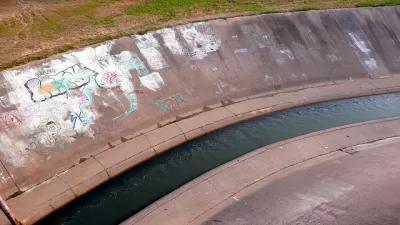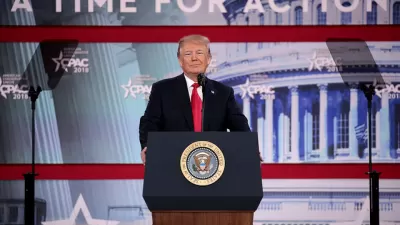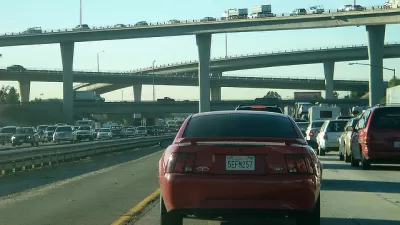The federal government is basically asking for matching funds from states and localities to fund infrastructure projects.

The hints, leaks, and more hints about the contents of the Trump Administration's long-promised infrastructure plan, which will be pitched in some headlines as a $1.5 trillion spending plan, finally bears fruit today.
According to multiple sources briefed by the White House yesterday, the Trump Administration is releasing a $1.5 trillion plan that relies mostly on states and local agencies to cover that large sum.
"The plan calls for investing $200 billion in federal money over the coming decade to entice other levels of government and the private sector to raise their spending on infrastructure by more than $1 trillion to hit the administration’s goal of $1.5 trillion in new funding over 10 years," report John Wagner and Heather Long.
The article also reveals two more pithy details: the Trump Administration "is open to a new source of funding to cover the federal share," including raising the federal gas tax. On a non-funding related matter, the plan "also seeks to dramatically reduce the time required to obtain environmental permits for [infrastructure] projects."
An article on The Hill released the full text of the infrastructure plan early Monday morning.
For additional coverage of the infrastructure plan, reported after a White House briefing with reporters on Sunday, see articles in the New York Times and NPR. Bloomberg also picked up the news today.
FULL STORY: Trump’s big infrastructure plan has a lot of detail on everything but how to pay for it

Maui's Vacation Rental Debate Turns Ugly
Verbal attacks, misinformation campaigns and fistfights plague a high-stakes debate to convert thousands of vacation rentals into long-term housing.

Planetizen Federal Action Tracker
A weekly monitor of how Trump’s orders and actions are impacting planners and planning in America.

Chicago’s Ghost Rails
Just beneath the surface of the modern city lie the remnants of its expansive early 20th-century streetcar system.

Bend, Oregon Zoning Reforms Prioritize Small-Scale Housing
The city altered its zoning code to allow multi-family housing and eliminated parking mandates citywide.

Amtrak Cutting Jobs, Funding to High-Speed Rail
The agency plans to cut 10 percent of its workforce and has confirmed it will not fund new high-speed rail projects.

LA Denies Basic Services to Unhoused Residents
The city has repeatedly failed to respond to requests for trash pickup at encampment sites, and eliminated a program that provided mobile showers and toilets.
Urban Design for Planners 1: Software Tools
This six-course series explores essential urban design concepts using open source software and equips planners with the tools they need to participate fully in the urban design process.
Planning for Universal Design
Learn the tools for implementing Universal Design in planning regulations.
planning NEXT
Appalachian Highlands Housing Partners
Mpact (founded as Rail~Volution)
City of Camden Redevelopment Agency
City of Astoria
City of Portland
City of Laramie





























